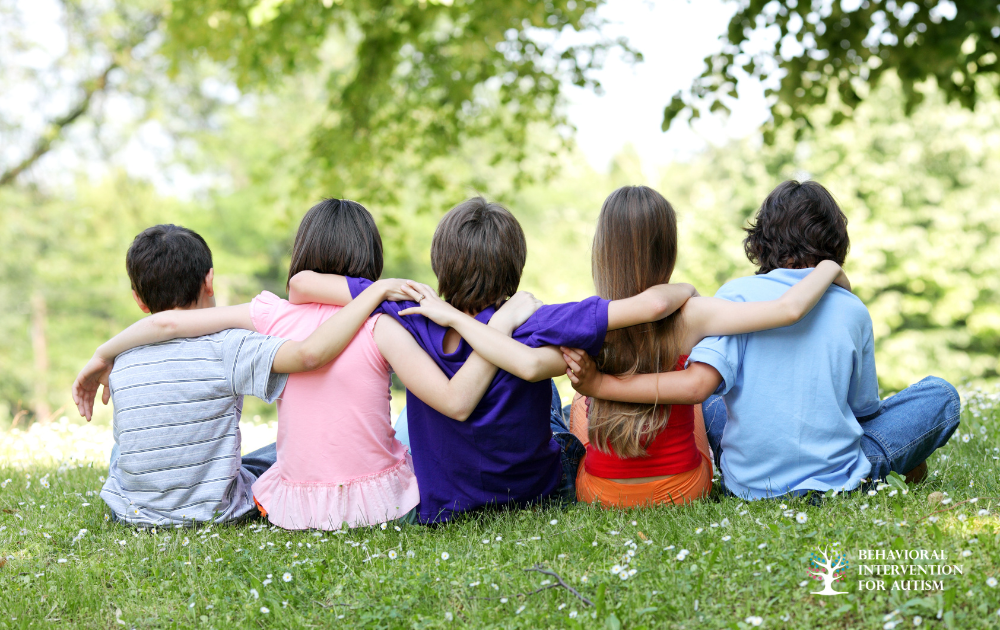
Table of Contents
Establishing and enhancing friendship skills is crucial for the social development of individuals with Autism Spectrum Disorders (ASD). Recognizing the importance of these skills and the innate desire for social involvement supports individuals with ASD in navigating their social interactions.
Importance of Friendship Skills
Social skill deficits are common in individuals with ASD, making it challenging for them to build and maintain meaningful relationships. These deficits can lead to negative outcomes such as academic struggles, social isolation, anxiety, depression, and peer rejection. By enhancing friendship skills, individuals with ASD can experience improved social interactions, increased confidence, and a sense of belonging in social settings.
Desire for Social Involvement

It is crucial to recognize and address this inherent desire for social connection in individuals with ASD. By providing them with the necessary tools, strategies, and support, we can help bridge the gap between their desire for social involvement and their ability to develop and maintain meaningful friendships. Understanding and nurturing this desire can pave the way for individuals with ASD to cultivate positive social relationships and enhance their overall well-being.
Strategies for Developing Friendship Skills
In the journey of enhancing friendship skills for individuals with autism spectrum disorder (ASD), various strategies play a pivotal role in supporting social growth and interaction. Let’s explore three key methodologies: video modeling and Video Self-Modeling (VSM), the skill acquisition/performance deficit model, and the evolution of friendship definition.
1. Video Modeling and VSM
Video modeling and VSM have emerged as effective intervention strategies for addressing social-communication skills, behavioral functioning, and functional skills in individuals with ASD. These techniques involve presenting video demonstrations of targeted behaviors and interactions, allowing individuals to observe and mimic appropriate social cues and responses.
Research indicates that skills acquired through video modeling and VSM are not only effectively learned but also maintained over time. Furthermore, these skills can be transferred across different individuals and settings, fostering comprehensive social skill development for individuals with ASD.
2. Skill Acquisition/Performance Deficit Model
Utilizing the skill acquisition/performance deficit model is integral in tailoring intervention strategies to address specific deficits present in individuals with ASD. This model guides the selection of interventions based on the type of deficit observed, whether it be skill acquisition deficits (difficulties in learning new skills) or performance deficits (challenges in applying learned skills in real-world situations).
Identifying and targeting underlying deficits allows intervention programs to be customized to meet the unique needs of individuals with ASD, maximizing the effectiveness of skill development initiatives.
3. Evolution of Friendship Definition
Individuals with ASD often exhibit an evolving concept of friendship, which progresses through distinct levels from early childhood to adolescence. This evolution encompasses friendships initially based on simple interactions like turn-taking and reciprocity, moving towards more complex connections forged through shared experiences and common interests.
As individuals with ASD transition into adolescence and adulthood, their understanding of friendship further develops into peer group acceptance and autonomous interdependence. By acknowledging and supporting this evolutionary process, caregivers and educators can facilitate the nurturing of meaningful social connections that align with the individual’s developmental stage and needs.
Understanding the significance of these strategies in fostering friendship skills development is paramount in empowering individuals with ASD to navigate social interactions with confidence and competence. By incorporating tailored interventions and acknowledging the evolving nature of friendship definitions, we can create a supportive environment that fosters genuine connections and enhances the quality of life for individuals with ASD.

Assessing and Teaching Friendship Skills
Assessing and teaching friendship skills to individuals with autism spectrum disorder (ASD) is crucial for their social development and overall well-being. Understanding their current abilities, utilizing behavioral strategies, and employing tools like social stories are essential components in this process.
1. Assessing Current Abilities
Children with ASD often have a desire for social involvement but may lack the necessary skills to interact effectively. This deficit in social skills can lead to challenges such as social anxiety, negative peer interactions, isolation, peer rejection, and other emotional difficulties. Assessing their current abilities in social settings can help identify areas of strength and areas needing improvement.
2. Utilizing Behavioral Strategies
In teaching friendship skills to individuals with ASD, utilizing behavioral strategies is vital. The skill acquisition/performance deficit model can guide the selection of intervention strategies based on the specific deficits present in the individual. By identifying whether the focus should be on skill acquisition or performance deficits, tailored interventions can be implemented to enhance social skills.
Techniques such as friendship diaries, interest-based matching, and involvement in support groups can further promote the development of friendship skills in individuals with ASD. Pairing individuals based on shared interests can facilitate genuine connections and meaningful interactions, fostering the foundation for lasting friendships.
3. Social Stories for Understanding
Social stories are effective tools for individuals with ASD to understand and navigate social situations, including friendship dynamics. These personalized narratives can help individuals comprehend social cues, expectations, and appropriate behaviors in various social contexts. By incorporating social stories into teaching friendship skills, individuals with ASD can enhance their understanding of social interactions and cultivate positive relationships.
Fostering friendships for individuals with ASD requires consideration of their interests and preferences. Encouraging participation in clubs or hobby groups aligned with these interests creates opportunities for shared experiences and connections with peers. Structured social interactions that are well-planned, supported, and time-limited can facilitate successful social connections and enhance friendship skills in individuals with ASD.
Assessment tools, behavioral strategies, and resources like social stories enable individuals with ASD to build meaningful friendships, improve social skills, and foster positive interactions, enhancing their overall well-being and quality of life.

Facilitating Friendship Opportunities
Enhancing friendship skills in individuals with autism involves creating opportunities for social interactions and fostering connections through shared experiences. By focusing on common interest activities, planned social interactions, and peer involvement, caregivers and educators can support the development of meaningful relationships for individuals with ASD.
1. Common Interest Activities
Incorporating common interest activities is a valuable strategy to promote friendship skills among individuals with autism. Techniques such as friendship diaries, matching individuals based on interests, and involvement in support groups can facilitate social connections. By introducing individuals with similar interests, opportunities for joint activities and shared information can arise, fostering genuine friendships.
2. Planned Social Interactions
Autistic learners may struggle with initiating social interactions due to a lack of understanding of the nuances of friendship development. While they may desire social connections, their challenges in knowing how to navigate social settings can lead to feelings of isolation. By structuring planned social interactions and providing guidance on social cues and communication strategies, individuals with autism can gradually build confidence and skills in forming relationships.
3. Peer Involvement for Social Connections
Peer involvement plays a crucial role in supporting autistic individuals in developing social connections. Observing and interacting with peers can provide valuable learning experiences for individuals with ASD, helping them acquire social skills and understand the dynamics of friendships. Without peer involvement, autistic learners may face difficulties in initiating social interactions and maintaining friendships, highlighting the importance of inclusive social environments for fostering relationships.
Emphasizing common interest activities, structured social interactions, and opportunities for peer involvement helps create a supportive and inclusive environment that fosters friendship skills in individuals with autism. By building on shared interests, providing social guidance, and facilitating peer interactions, caregivers and educators empower individuals with ASD to form meaningful and lasting friendships, enhancing their overall social well-being.
Nurturing Connections
Developing friendship skills is essential for individuals with autism, as these connections can significantly enhance their quality of life. Learning how to communicate, share interests, and empathize with peers fosters deeper relationships and a sense of belonging.
Behavioral Intervention For Autism focuses on providing tailored ABA therapy in Florida that emphasizes social skills development. Our experienced team understands the unique challenges individuals may face in forming friendships and is dedicated to creating personalized strategies to promote positive interactions. We invite you to discover how our services can make a meaningful impact on your loved one’s social journey. Don’t hesitate to reach out to us today to learn more!
- 9 Common Obsessions of Children With Autism You Should Know - February 25, 2025
- What is Neurodiversity? A Guide to Embracing Differences - February 25, 2025
- Understanding Hyperfocus in Autism: What It Means and Why It Happens - February 25, 2025
